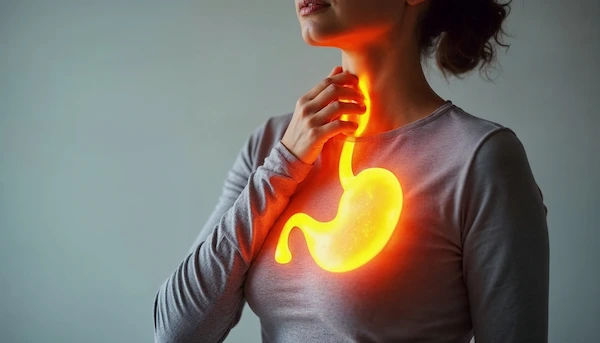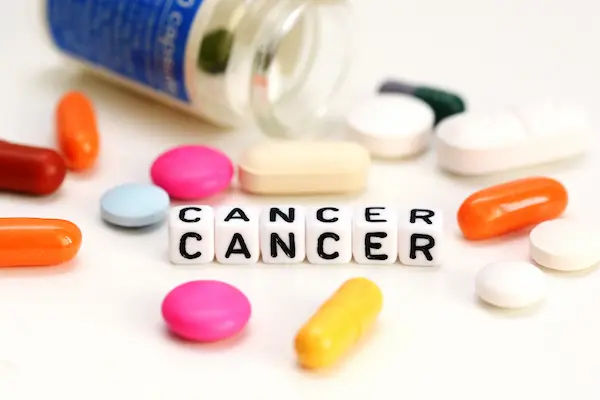Your Essential Guide to Safety During Chemotherapy
Learn essential safety tips during chemotherapy, including infection prevention, nutrition, side-effect management, and when to seek urgent medical help.

Written by Dr. Rohinipriyanka Pondugula
Reviewed by Dr. Mohammed Kamran MBBS, FIDM
Last updated on 13th Jan, 2026
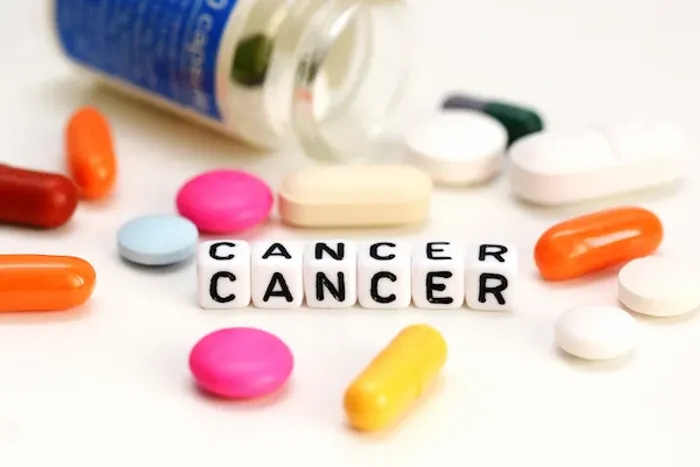
Introduction
Beginning chemotherapy is a significant step in your cancer treatment journey. While its goal is to target and eliminate cancer cells, it can also affect healthy cells, leading to side effects and a temporarily weakened immune system. This makes taking specific precautions during chemotherapy not just advisable, but essential for your safety and well-being. This guide is designed to empower you and your caregivers with practical, actionable knowledge. We will cover everything from infection prevention and dietary changes to managing daily life and knowing when to seek immediate help. Think of these precautions as your personal toolkit—strategies to help you navigate treatment with greater confidence, minimise risks, and focus on your healing. Our goal is to provide a comprehensive overview that complements the specific instructions from your healthcare team.
Understanding How Chemotherapy Works & Why Precautions Matter?
Chemotherapy drugs are powerful; they work by targeting rapidly dividing cells, a hallmark of cancer. However, this action isn't perfectly selective. It also affects other fast-dividing cells in your body, such as those in your bone marrow (which produces infection-fighting white blood cells), your digestive tract, and your hair follicles. This is what causes common side effects like fatigue, nausea, and an increased susceptibility to infections. The period when your blood cell counts are at their lowest is called the "nadir," typically occurring 7-14 days after a treatment cycle. It is during this time that precautions during chemotherapy are most critical. By understanding this mechanism, the reasons behind the guidelines—like avoiding crowds or practising meticulous hygiene—become clear. They are not meant to restrict your life but to protect you when your body's natural defences are compromised.
Fortifying Your Defences; Preventing Infections
This is the most crucial category of precautions during chemotherapy. A condition called neutropenia (low neutrophil count) significantly increases your risk of infections, which can quickly become serious.
Mastering Hand Hygiene
Washing your hands frequently with soap and warm water for at least 20 seconds is your first and best defence. Carry an alcohol-based hand sanitiser for times when soap and water aren't available. Ensure all family members and visitors do the same.
Avoiding Illness in Others
Steer clear of anyone who is sick, even with a minor cold. Avoid crowded places like shopping centres, cinemas, or public transport, especially during your nadir period. It's also wise to avoid contact with children who have recently received live-virus vaccines (like MMR or chickenpox).
Food Safety: Your Kitchen Rules
A chemo diet must prioritise safety. Avoid raw or undercooked meat, fish (including sushi), and eggs. Steer clear of unpasteurised dairy products and juices. Thoroughly wash all fruit and vegetables. Use separate chopping boards for raw meat and ready-to-eat foods to prevent cross-contamination.
Nutrition During Chemotherapy; Eating Well to Feel Stronger
Proper nutrition provides the fuel your body needs to repair tissues and maintain strength. Managing chemo side effects like nausea and mouth sores can make eating challenging, but it's vital to try.
Foods to Embrace for Strength and Healing
Focus on well-cooked, nutrient-dense foods. Lean proteins like chicken, fish, and eggs (fully cooked) help rebuild tissue. Eat cooked vegetables and tinned fruits (in juice, not syrup). Whole grains like porridge oats and well-cooked pasta provide energy. Stay hydrated with water, broth, and electrolyte-replenishment drinks.
Health topic carousel:
Doctor's speciality: Oncology
Text: Consult an Oncologist for the best advice
Foods to Avoid During Treatment
As mentioned, avoid raw foods. Be cautious with deli meats and hot dogs unless they are reheated to steaming hot. Avoid buffets and salad bars where food sits out. Skip foods that may carry bacteria, like raw honey (pasteurised is fine), and certain aged cheeses.
Managing Common Eating Challenges
For nausea, try ginger tea, crackers, or bland foods. For mouth sores, choose soft, moist foods like mashed potatoes, smoothies, and scrambled eggs. Avoid acidic, spicy, or rough foods that can cause irritation. If you're struggling to maintain weight, consult a nutritionist or your oncologist for personalised advice. Apollo24|7 offers easy access to nutritionists who can help you create a meal plan tailored to your specific needs and treatment phase.
Managing Common Side Effects at Home
Combating Chemotherapy Fatigue
This is more than just tiredness; it's a profound exhaustion. Listen to your body. Balance rest with light activity, like short walks, which can actually help boost energy. Prioritise tasks and don't hesitate to ask for help with chores.
Oral Care for Mouth Sores (Mucositis)
Use a very soft-bristle toothbrush. Rinse your mouth several times a day with a salt and bicarbonate of soda solution (1/2 tsp salt + 1/2 tsp bicarbonate of soda in 1 cup warm water). Avoid alcohol-based mouthwashes. Keep your lips moist with a gentle, fragrance-free balm.
Skin and Nail Changes: Soothing and Protection
Your skin may become dry, sensitive, and more prone to sunburn. Use mild, fragrance-free soaps and moisturisers liberally. Protect your skin from the sun with protective clothing and a broad-spectrum sunscreen (SPF 30 or higher). Nails may become brittle or discoloured; keep them trimmed and clean.
Daily Life and Lifestyle Adjustments
Personal Care and Household Tips
Use an electric razor instead of a blade to avoid nicks and cuts. Wear gloves for gardening and washing dishes. Clean cuts immediately with soap, water, and an antiseptic, and cover with a plaster. If a cut shows signs of infection (redness, swelling, pus), consult a doctor online with Apollo24|7 for immediate guidance. Have someone else clean up after pets or change cat litter to avoid exposure to germs.
Work, Socialising, and Mental Wellbeing
Be open with your employer about your needs, which may include flexible hours or remote work. It's okay to say no to social events if you're not feeling up to it. Stay connected with friends and family through phone calls or video chats. Consider joining a support group to share experiences and coping strategies.
When to Call Your Doctor?
While precautions during chemotherapy reduce risk, you must be vigilant. Contact your oncology team immediately if you experience:
A fever of 100.4°F (38°C) or higher. This is a medical emergency during chemo.
Chills or sweating.
Shortness of breath or a new cough.
Diarrhoea or vomiting that persists.
New pain, especially if severe.
A rash or allergic reaction (hives, swelling).
Signs of infection in a cut (redness, swelling, warmth, pus).
Do not wait. Early intervention is critical.
Conclusion
Undergoing chemotherapy is a challenging process, but being proactive with these precautions during chemotherapy puts you in control of your safety. This guide provides a strong foundation, but always remember that your medical team's advice is paramount. They know your specific treatment plan and health status best. Use these strategies to build a protective framework around your daily life. Listen to your body, communicate openly with your caregivers and doctors, and don't hesitate to ask for help. You are the most important member of your healthcare team. By partnering with your providers and taking these thoughtful steps, you are actively contributing to your treatment journey and overall well-being.
Frequently Asked Questions (FAQs)
Can I be around my family and friends during chemotherapy?
Yes, you can and should spend time with your support system. However, they must be healthy. Anyone who is sick, even with a minor cold, should avoid visiting until they are fully recovered. Ensure everyone practises good hand hygiene.
Is it safe to exercise during chemotherapy?
Light to moderate exercise, like walking or gentle yoga, is often encouraged as it can help reduce fatigue and improve mood. Always get your doctor's approval before starting any new exercise routine and listen to your body, resting when needed.
How can I manage the emotional toll of chemotherapy?
It's normal to experience a range of emotions. Talking to a therapist, joining a cancer support group, practising mindfulness or meditation, and staying connected with loved ones can be incredibly beneficial. Apollo24|7 provides access to mental health professionals specialising in supporting individuals through chronic illness.
What should I do if I forget a precaution?
Don't panic. One minor slip-up doesn't guarantee a problem. Simply resume your precautionary habits immediately. Monitor yourself closely for any signs of illness and contact your doctor if you have any concerns.
Are there any specific vitamins or supplements I should take?
Never take any vitamins, herbs, or supplements without your oncologist's explicit approval. Some can interfere with how chemotherapy works, making it less effective or increasing side effects.
Health topic carousel:
Doctor's speciality: Oncology
Text: Consult an Oncologist for the best advice
Consult Top Specialists for Personalised Tips

Dr. Sanchayan Mandal
Medical Oncologist
17 Years • MBBS, DNB Raditherapy, DrNB Medical Oncology
East Midnapore
VIVEKANANDA SEBA SADAN, East Midnapore

Dr. Sanchayan Mandal
Medical Oncologist
17 Years • MBBS, DrNB( MEDICAL ONCOLOGY), DNB (RADIOTHERAPY),ECMO. PDCR. ASCO
Kolkata
MCR SUPER SPECIALITY POLY CLINIC & PATHOLOGY, Kolkata

Dr.sanchayan Mandal
Medical Oncologist
17 Years • MBBS, DrNB( MEDICAL ONCOLOGY), DNB (RADIOTHERAPY),ECMO. PDCR. ASCO
Kolkata
Dr. Sanchayan Mandal Oncology Clinic, Kolkata

Dr. Naman Utreja
Radiation Specialist Oncologist
11 Years • MBBS, MD Radiotherapy
Noida
Shanvi Heart and Cancer Care Clinic, Noida
(50+ Patients)
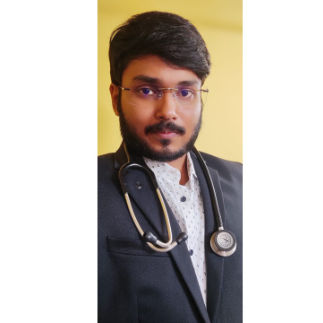
Dr. Rupam Manna
Radiation Specialist Oncologist
7 Years • MBBS MD(RADIO THERAPY), CCEBDM
Barasat
Diab-Eat-Ease, Barasat
Consult Top Oncologist

Dr. Sanchayan Mandal
Medical Oncologist
17 Years • MBBS, DNB Raditherapy, DrNB Medical Oncology
East Midnapore
VIVEKANANDA SEBA SADAN, East Midnapore

Dr. Sanchayan Mandal
Medical Oncologist
17 Years • MBBS, DrNB( MEDICAL ONCOLOGY), DNB (RADIOTHERAPY),ECMO. PDCR. ASCO
Kolkata
MCR SUPER SPECIALITY POLY CLINIC & PATHOLOGY, Kolkata

Dr.sanchayan Mandal
Medical Oncologist
17 Years • MBBS, DrNB( MEDICAL ONCOLOGY), DNB (RADIOTHERAPY),ECMO. PDCR. ASCO
Kolkata
Dr. Sanchayan Mandal Oncology Clinic, Kolkata

Dr. Naman Utreja
Radiation Specialist Oncologist
11 Years • MBBS, MD Radiotherapy
Noida
Shanvi Heart and Cancer Care Clinic, Noida
(50+ Patients)

Dr. Rupam Manna
Radiation Specialist Oncologist
7 Years • MBBS MD(RADIO THERAPY), CCEBDM
Barasat
Diab-Eat-Ease, Barasat

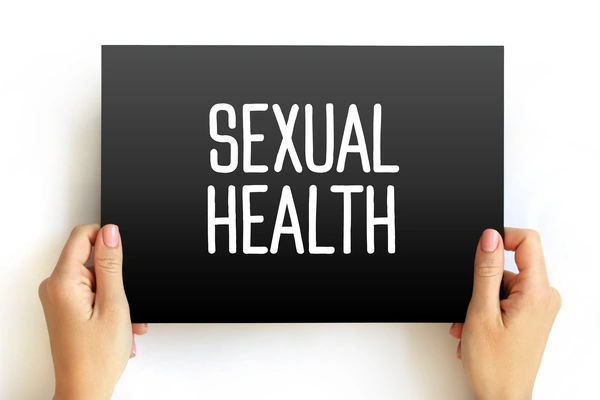
_1.webp)
